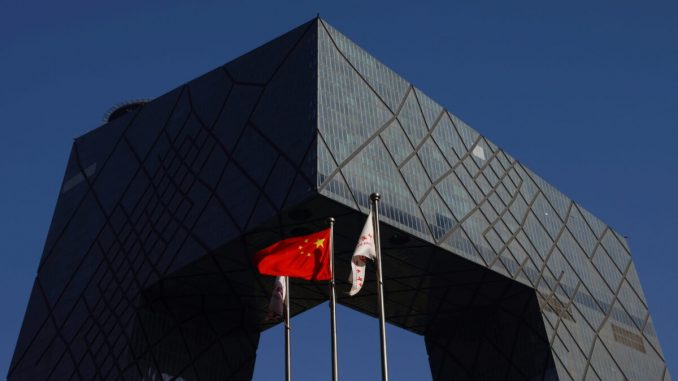
Commentary
China spent almost $64 million in propaganda expenses in the United States in 2020, according to a new report from the Center for Responsive Politics (CRP). The sum is from new foreign-agent filings through the Foreign Agents Registration Act (FARA) and represents a sixfold increase from the $10 million registered in 2016.
Both numbers vastly underestimate China’s influence in the United States, which is primarily through the approximately $600 billion in annual trade between the two countries. Every dollar traded with China benefits some Americans, many of whom seek to influence U.S. government policy toward appeasing rather than confronting China. Appeasement ensures trade flow. Confrontation threatens trade flow. The math is simple.
The biggest and most politically influential corporations and billionaires make the most from China. So, big business and the think tanks, academics, and nonprofits that big business supports, mostly tend to favor more free trade with China.
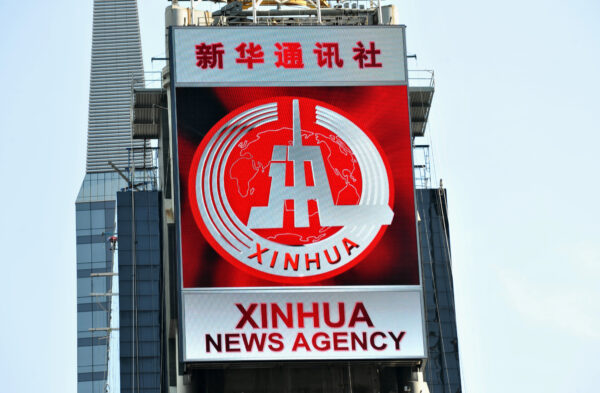
Current FARA laws are horribly inadequate at addressing the $64 million in obvious propaganda operations, much less the $600 billion worth of political influence through trade. New and tougher legislation is urgently needed given China’s growing economic, diplomatic, and military power. The Biden administration should increase, not decrease, current tariffs against Chinese goods, especially those of a strategic nature, like pharmaceuticals, personal protective equipment (PPE), steel, and communications devices. In case of emergency, the United States must not allow itself to become dependent on an adversary nation. Trade with Canada is fine. Trade with China—not so much. Trump’s tariffs against China should not be frittered away as bargaining chips for more U.S. trade with the behemoth.
China spent more than any other country on the most obvious of foreign influence operations in the United States in 2020, according to the CRP report. Next up were Qatar at $50 million and Russia at $29 million. China Central Television’s U.S. subsidiary (CCTV America) spent more than $50 million. CCTV is one of China’s state-controlled media outlets.
Last week, Xinhua, another state-controlled media outlet from China, first officially registered with FARA. This was three years after notification by the Justice Department of its requirement to register, according to Foreign Lobby Report. Perhaps Xinhua was waiting for a Democrat presidency, in hopes that it would be softer on the reporting requirement. But apparently, Biden didn’t budge from the Trump administration’s position.
Xinhua’s FARA filing inaccurately describes it as “an independent legal entity.” According to Axios, “In fact, the media organ is owned by the Chinese [regime], run by senior Communist Party officials and widely seen as a Beijing mouthpiece.” Xinhua has bureaus in Washington D.C., Houston, San Francisco, Los Angeles, and Chicago. The new FARA registration reveals $8.6 million paid since March 2020 by Xinhua headquarters in China.
New reporting from China Daily and China Global Television Network (CGTN), not new spending, drove the sixfold increase in China’s reported propaganda spending in the United States. Some of this spending likely biased mainstream U.S. media outlets. In 2019, China Daily spent $19 million on inserts in outlets like the Washington Post, Wall Street Journal, New York Times, Des Moines Register, Los Angeles Times, Seattle Times, Atlanta Journal-Constitution, Chicago Tribune, Houston Chronicle, Boston Globe, Foreign Policy, and on Twitter ads.
Another big Chinese spender in 2020 was Huawei Technologies, at $3.5 million.
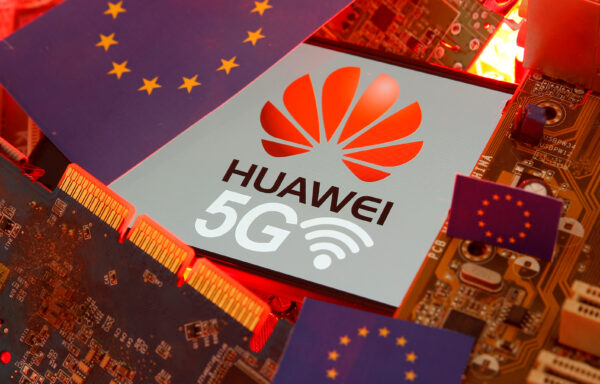
“Like those of other nations, Chinese state-run media have resisted U.S. Justice demands to register under FARA, a law originally created to expose Nazi propaganda in the U.S.,” according to Axios. “Prior to their disclosures, these Chinese media organs operated in the shadows, unencumbered by FARA requirements requiring disclosure about their structures and finances.”
The FARA legislation, passed in 1938, is horribly outdated and largely unenforced. It has mostly been used against alleged spies who could not be convicted of more serious crimes. And, there are multiple loopholes. According to an investigation by the Project on Government Oversight (POGO), “We found that lobbyists for foreign interests have routinely failed to comply with the law—a failure that prevents journalists and watchdogs from scrutinizing the lobbying activities while foreign interests are trying to influence U.S. policy. We found a pattern of lax enforcement of FARA requirements by the Justice Department. We found that the Justice Department office responsible for administering the law is a record-keeping mess. And we found loopholes in the law that often make it difficult if not impossible for the government to police compliance or to discipline lobbyists who fail to comply.”
POGO found “many instances in which members of lobbying firms made political contributions to Members of Congress on the same day that those firms were lobbying the Members of Congress or their legislative staffs on behalf of foreign clients.” In other words, the United States government is a cesspool of foreign influence.
Democrats complain about Russian influence of Trump. Republicans complain about Chinese influence of Biden. Whatever the truth of these claims, let’s get some bipartisan legislation through, and quickly, that outlaws both forms of influence. The U.S. presidency must be completely firewalled from adversary influence, as should, at a minimum, the secretary and under-secretary levels of government. Any appearance of influence must be removed to shore up confidence in our government. This should be a no-brainer, but apparently our patriotic politicians in Washington D.C. are too busy looking for the next buck to do their jobs properly.
FARA lacks sufficient investigative capacities, and only rarely seeks court injunctions against violators. Hard copies of documentation are kept in the office and are not easily accessible online for public inspection. Filing is cumbersome and expensive, often requiring a lawyer to fill out papers. Routine filing, updates, and the submission of auxiliary documents by FARA filers should be automated, simplified, and immediately available to the public through searchable web pages.
Better yet, such foreign influence operations, especially by adversary countries like China, Russia, Iran, and North Korea, should be made illegal on principle. Former U.S. government personnel and their companies should not be allowed to work for foreign entities after their U.S. government service. Such allowances make them vulnerable to quid pro quo influence while they are still in government office.
Former Secretary of State Henry Kissinger, former Secretary of Defense William Cohen, former Secretary of Defense James Mattis, and former Secretary of Homeland Security Tom Ridge, have all worked for clients from China, or worked for companies or with individuals that have had Chinese clients. On their watch, the United States weakened relative to China.
Other influential U.S. personages who have benefitted from China-linked income after their government service are former Assistant Secretary of Defense Joseph Nye, former Assistant Secretary of State for East Asian and Pacific Affairs Kurt Campbell, and former Assistant Secretary of State for East Asian and Pacific Affairs Danny Russel.
Yes, China might retaliate for truly tough measures against foreign influence by ejecting some Western businesses and reporters. But those businesses are making us dependent on China, and influencing our politics. Our Western reporters in China are constrained anyway, including through the threat of visa cancellations for negative reporting, and by government minders if reporters stray into sensitive locations like Tibet and Xinjiang. Such constraints bias their reporting, and threaten to make them a form of disinformation through the constraints that their authoritarian hosts engineer.
Until China shapes up, it’s better to make a clean break with the country, including by our businesses and media. Keep reporting about China, but do it from a distance if necessary to remove any question of bias. Keep doing business, but trade with our friends, not our enemies.
Anders Corr has a BA/MA in political science from Yale University (2001) and a Ph.D. in government from Harvard University (2008). He is a Principal at Corr Analytics Inc., Publisher of the Journal of Political Risk, and has conducted extensive research in North America, Europe, and Asia. He authored “The Concentration of Power” (forthcoming 2021) and “No Trespassing,” and edited “Great Powers, Grand Strategies.”
Views expressed in this article are the opinions of the author and do not necessarily reflect the views of The Epoch Times.



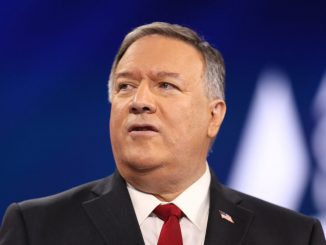
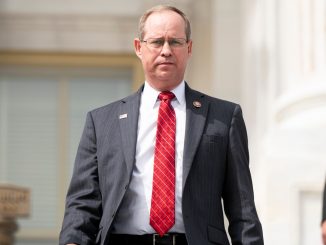
Be the first to comment